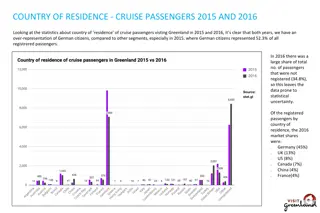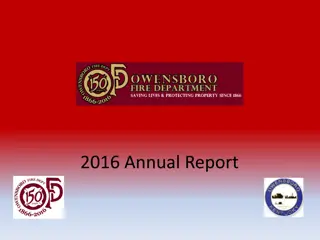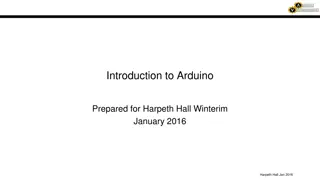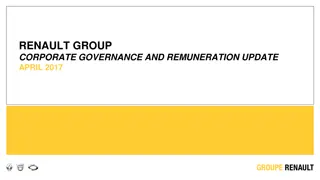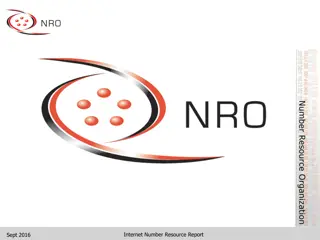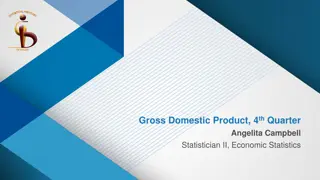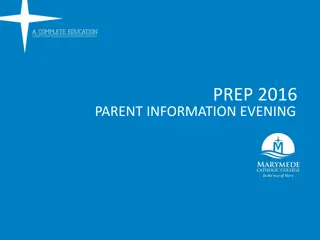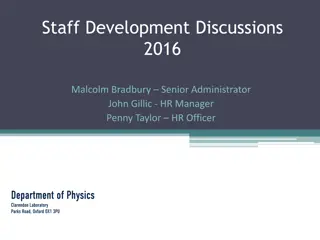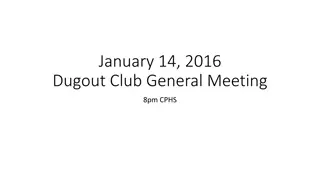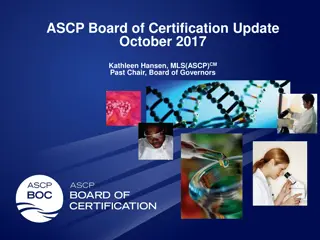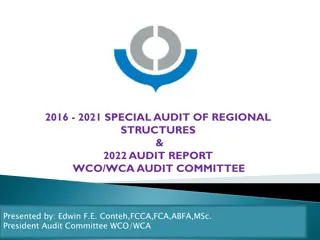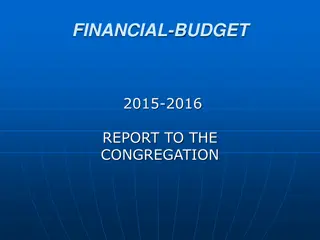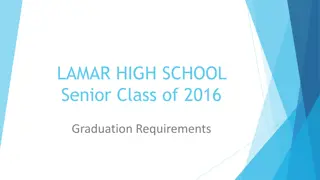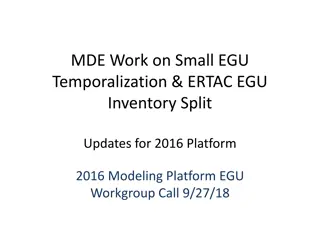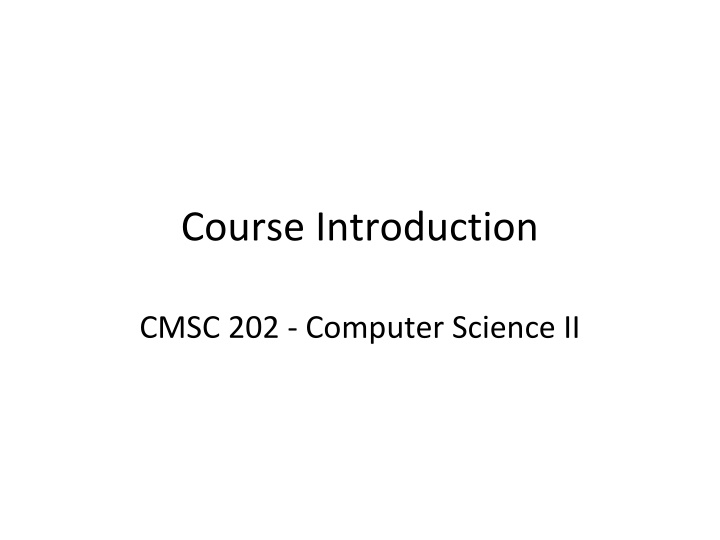
Computer Science II: CMSC 202 Course Introduction and Details
"Explore CMSC 202, a second-semester programming class offering an introduction to Object-Oriented Programming (OOP) and software engineering techniques. Learn about the course structure, instructors, tools used, and more. Dive into procedural vs. object-oriented programming concepts and understand the significance of models in science."
Download Presentation

Please find below an Image/Link to download the presentation.
The content on the website is provided AS IS for your information and personal use only. It may not be sold, licensed, or shared on other websites without obtaining consent from the author. If you encounter any issues during the download, it is possible that the publisher has removed the file from their server.
You are allowed to download the files provided on this website for personal or commercial use, subject to the condition that they are used lawfully. All files are the property of their respective owners.
The content on the website is provided AS IS for your information and personal use only. It may not be sold, licensed, or shared on other websites without obtaining consent from the author.
E N D
Presentation Transcript
Course Introduction CMSC 202 - Computer Science II
Instructors & Lecture Sections Mr. James (Jim) Kukla MoWe, 5:30 6:45 pm, ITE 102 Note: Projects and labs are shared between sections. Anything else is coincidental. 2 2/1/2016
What is CMSC 202? A second semester programming class. An opportunity to learn a second programming language. A lightweight introduction to Object-oriented programming (OOP) and object- oriented design (OOD) Basic software engineering techniques Tools C++ programming language, GCC (Gnu Compiler) Linux (GL system) 1/12/15 3
Course Web Site and Blackboard Course web site TBD. Will be linked here (along with other sections): www.csee.umbc.edu/courses/undergraduate/202/ We will be using Blackboard, but I haven t set it up yet. I may or may not post notes and slides but you re still responsible for what I cover either way. Short version: 5 projects, labs, a final, and 1 midterm 1/12/15 4
Since all models are wrong the scientist cannot obtain a "correct" one by excessive elaboration. On the contrary following William of Occam he should seek an economical description of natural phenomena. Just as the ability to devise simple but evocative models is the signature of the great scientist so overelaboration and overparameterization is often the mark of mediocrity. - George E. P. Box, Science and Statistics, 1976
All models are wrong. Some are useful. I will lie to you during this semester when the truth gets in the way of understanding. (It s nothing personal.)
Procedural vs. OO Programming Procedural Modular units: functions Program structure: hierarchical Data and operations are not bound to each other Examples: C, Pascal, Basic, Python Object-Oriented (OO) Modular units: objects Program structure: a graph Data and operations are bound to each other Examples: C++, Java, Python (huh?!) A Collection of Objects A Hierarchy of Functions 1/12/15 5
Whats an Object? Must first define a class A data type containing: Attributes make up the object s state Operations define the object s behaviors Type String Bank Account sequence of characters more? account number owner s name balance interest rate more? Attributes (state) compute length concatenate test for equality more? Operations (behaviors) deposit money withdraw money check balance transfer money more? 1/12/15 6
So, an Object is A particular instance of a class Marron s Account Kukla s Account Park s Account 12-345-6 Chris Marron $1,250.86 1.5% 65-432-1 James Kukla $5.50 2.7% 43-261-5 John Park $825.50 2.5% For any of these accounts, one can Deposit money Withdraw money Check the balance Transfer money 1/12/15 7
Why C++ for 202? Popular modern OO language Wide industry usage Used in many types of applications Desirable features Object-oriented Portable (not as much as Java, but fairly so) Efficient Retains much of its C origins 1/12/15 8
Some C++ Background Bjarne Stroustrup (image from home page) Created in 1979 by Bjarne Stroustrup of Bell Labs (home of UNIX and C). Added object-oriented features to C. Renamed to C++ in honor of auto-increment operator. Later standardized with several International Organization for Standards (ISO) specifications. Greatly influenced Java development (1991). 1/12/15 9
Interpreters, Compilers, and Hybrids Interpreted Languages (e.g. JavaScript, Perl, Ruby) Interpreter translates source into binary and executes it translate & execute source code Small, easy to write Interpreter is unique to each platform (operating system) interpreter Compiled Languages (e.g. C, C++) source code binary code Compiler is platform dependent compile execute compiler command Many other models: e.g., Java (Python is stranger still): Bytecode is platform independent source code translate & execute bytecode compile JVM is an interpreter that is platform dependent Java compiler Java Virtual Machine (JVM) 1/12/15 10
C++ Compilation & Linkage Linux C++ code library binary library code Linux C++ compiler Linux linker Linux C++ binary Linux C++ executable code Any C++ source code text editor Windows C++ binary Windows C++ compiler Windows linker Windows C++ executable code binary library code Windows C++ code library 1/12/15 11
Python vs. C++ Syntax Python C++ #include <iostream> using namespace std; print "Hello, world" quotient = 3 / 4 if quotient == 0: print "3/4 == 0", print "in Python" else: print "3/4 != 0" int main() { int quotient; cout << "Hello, world"; quotient = 3 / 4; if (quotient == 0) { cout << "3/4 == 0"; cout << " in C++"; } else { cout << "3/4 != 0"; } return 0; } Elements of C++ Procedural and OOP elements Must have a main() function Statements end with ; Variables must be declared if/else syntax different Statement blocks demarcated by {...} Much that is similar 1/12/15 12
Development Environment You will use the GL Linux systems and GCC (GNU Compiler Collection) suite for development. You will learn to be semi-literate in Linux and shell usage. I strongly recommend you learn to use the git revision control system and then use it continuously throughout your career (until something better comes along). You will learn to use a text editor Emacs is recommended. You may use IDEs such as Eclipse or XCode, but support will not be provided, and Your programs must compile and function correctly on the GL Linux systems. 1/12/15 13
Everyone is a newbie at some point. This is a good thing . Don t let other people make you feel bad for learning something new. Don t make other people feel bad for learning something new. You re all in this together.
Go take Learning How to Learn on coursera.org No, seriously. Write the course name down. I ll wait. TL;DR: Don t cram. Do a little every day. You re rewiring your brain. It takes time. In our case, that means programming just a little every ****ing day.
How to learn a programming language in three steps: Think of a program you know how to write. Try writing it in the new language. (Rinse, repeat) Because languages are trying to solve the same problem (describing to a computer how to solve a problem) they tend to be more similar than different. (lisp and forth are exceptions. So learn them.)

